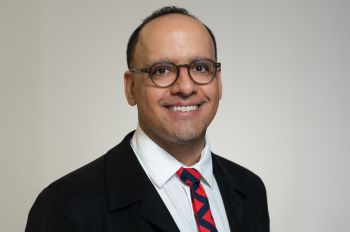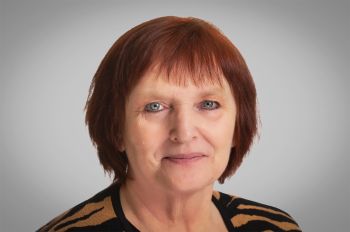August Hieber ’19 Helps Amend Cook County Code
When August Hieber ’19 returned from a field trip to the Illinois State Capitol for Chicago-Kent College of Law Adjunct Professor William C. Kling’s Advanced Legislative Advocacy course in spring 2019, the student faced an uncomfortable position when trying to use the restroom.
“For the trip, we all wore business attire and for me, that includes wearing a jacket and tie,” Hieber explains. “When I went to the restroom, a group of men read me as a man and directed me to the hallway where the bathrooms were. When I said thank you, they realized I was not a man as they expected and made lots of comments as I was walking past, like ‘Oh, it’s not a guy,’ and ‘Make sure you use the one on the left’ (which was the women’s restroom), and were laughing. It was not overt discrimination, but I felt unsafe.”
It was around that time that Hieber began doing research to draft a new amendment to the Human Relations chapter of the Cook County Code that would make it easier for transgender, nonbinary, and gender non-confirming people to use the restroom of their choice. Hieber learned that Chicago had amended an ordinance in its municipal code in 2016 that allowed managers in restaurants and other public accommodations to ask customers for identification before they were allowed to use the restroom.
“As a trans nonbinary person myself, I wanted to know whether I, as well as other transgender, nonbinary, and gender non-conforming folks, had the same protection and interest in privacy in other parts of Cook County that we did in Chicago as a result of that amendment,” Hieber says. “When I read the Human Relations Chapter of the Cook County Code and realized that we did not, I knew that the code absolutely needed to be amended.”
Hieber modeled the amendment on Chicago’s 2016 Equal Access Consistent with a Person’s Gender Identity Amendment—a collaboration between the LGBTQ Project of ACLU-Illinois, the Chicago Restroom Access Project, Equality Illinois, and Lambda Legal.
Kling had counseled his students on the importance of finding “policy champions.” Hieber identified Cook County Commissioner Kevin Morrison, a member of the Human Relations Committee who had made a campaign promise to protect transgender rights.
Morrison invited Hieber to speak before a Human Relations Committee meeting over the summer. “It was the first time I had testified in front of a government body so I was nervous, but part of Professor Kling’s Legislative Advocacy course includes drafting a hearing speech and then presenting as part of the final project, so I felt confident in the testimony that I drafted,” says Hieber.;
The amendment went before the entire Cook County Board of Commissioners the next day and passed unanimously.
“I am very proud of [Heiber's] hard work and diligence in working with Cook County Commissioner Kevin Morrison on this ordinance,” says Kling, who has taught Legislative Advocacy for almost 25 years. “Giving students the opportunity to draft legislative language and testify before a committee provides a unique and important learning experience.”



